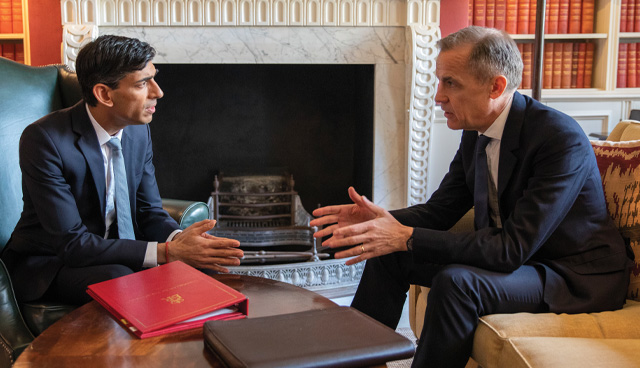Emergency Budget delayed

Plans for a large economic stimulus package for the UK economy have been delayed, with the Treasury downplaying the idea that such a package will constitute an emergency Budget.
As the UK seeks to kickstart its economic recovery following the lifting of many restrictions introduced to manage the spread of Covid-19, Chancellor Rishi Sunak has delayed plans to announce a large-scale stimulus package, expected to contain spending commitments and tax cuts.
Instead, the Chancellor, who has been the face of a range of mitigation measures introduced by the UK Government to protect the economy at an estimated cost of £133 billion, looks set to wait until the autumn to make any announcement, allowing for more time to assess the damage done to the economic landscape and, potentially, greater clarity on the UK’s trading relationship with its largest export partner the EU.
However, hopes that the package would amount to an emergency Budget have been downplayed by the Treasury, who introduced an updated, limited package of measures in July.
It’s believed that the UK Government’s ambitions for economic recovery have been dampened by lower than expected levels of consumer spending, following the easing of lockdown measures.
Data gathered by the Financial Times’ Economic Editor Chris Giles shows little uplift in the high-frequency indicators of consumer spending, mobility and confidence in the weeks following the UK Government’s advice for people to go back to work on 11 May, compared to at the height of lockdown.

Budget 2020 was only announced in early March but was largely overshadowed by the scale of the pandemic outbreak. Just weeks later, Sunak was forced to announce radical measures to tackle the pandemic, which will ultimately reshape the economic outlook.
The Job Retention Scheme, the largest and most expensive measure announced by Sunak, was developed with the aim of freezing the economy and limiting the number of job losses and businesses collapsing. The summer statement was expected to represent a thawing of this freeze and signal the Government’s ‘rebuild’ phase of its pandemic management. Instead, however, with increased threats of a second wave, the Chancellor has opted for a stopgap.
The £30 billion package is much lower than many had expected and is tailored to limiting the levels of redundancies and propping up the hospitality sector over what would usually be its income heavy months. With the Chancellor adamant that the Job Retention Scheme support will end in October, there is also a focus on preventing a rise in youth unemployment.
For jobs, Sunak introduced a job retention bonus, offering £1,000 per worker to businesses bringing staff off furlough at a potential, although unlikely, cost of £9 billion. Any fall in the cost, through employers not bringing workers back, would also represent a drop in the investment levels of the package. He also re-announced plans for a £2 billion work creation scheme aimed at young people.
In relation to tourism and hospitality, the Treasury has cut the VAT rate from 20 per cent to 5 per cent for the industry for six months. Additionally, the ‘eat out to help out’ scheme, which saw the Government pay a portion of an individual’s bill up to £10 for the month of August, was aimed at enhancing consumer spend in the industry.
Additionally, the housing market in England got a boost with the raising of the stamp duty threshold from £125,000 to £500,000 until the end of March 2021. The raise also applied to Northern Ireland but given that the average house price in Northern Ireland is much lower than other regions of the UK, any saving to the average purchaser is expected to be minimal.
Likely to shape any emergency Budget, if that is indeed what emerges, is the success which these measures have, given the huge levels of public borrowing the UK has had to undertake already. It is estimated that the £350 billion borrowed for the financial year represents 18 per cent of national income and is nearly twice the size of the deficit at the height of the financial crisis.
The summer statement was expected to represent a thawing of this freeze and signal the Government’s ‘rebuild’ phase of its pandemic management. Instead, however, with increased threats of a second wave, the Chancellor has opted for a stopgap.
For Northern Ireland, the Barnett consequential of the package, including a £33 million announced by the Treasury for cultural support previously, was estimated to be in the region of £162 million. However, in an unprecedented step from the usual funding process, the Chancellor made an upfront guarantee to the devolved regions based on estimations of the total additional spending for England.
The £600 million announced for Northern Ireland came after Finance Minister Conor Murphy had co-authored a letter from the finance ministers of the devolved regions calling on Sunak to change how the devolved governments were funded and called for more flexibility in the spending rules.
The amount of money available for spending by the Northern Ireland Executive had been unclear given that funding due to the devolved governments had been based on the upper limit of spending schemes announced in England. However, the Treasury moved to guarantee funding which had already been announced.
Finance Minister Conor Murphy originally criticised the summer package announced by Sunak as not being “ambitious enough to spur economic recovery” and called for “comprehensive stimulus package”, while welcoming the cut in the VAT rate and the Job Retention Bonus Scheme, as well as the ‘eat out to help out’ discount scheme.
However, following the confirmation of the £600 million to be allocated to Stormont, he issued a fresh statement welcoming the additional funding and the clarity provided on the Executive’s budget for its Covid response.
Murphy has suggested that it will be September before the Executive announces where the additional money will be spent but that it is likely the majority will go to the Department of Health, with upcoming winter pressures in mind.





